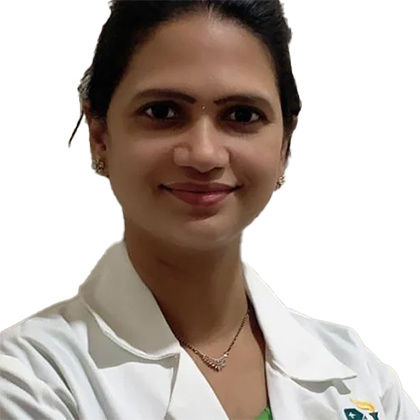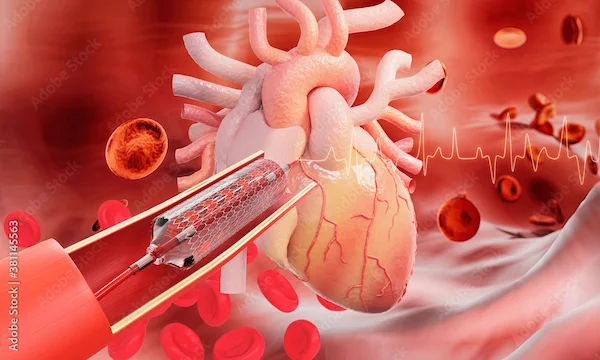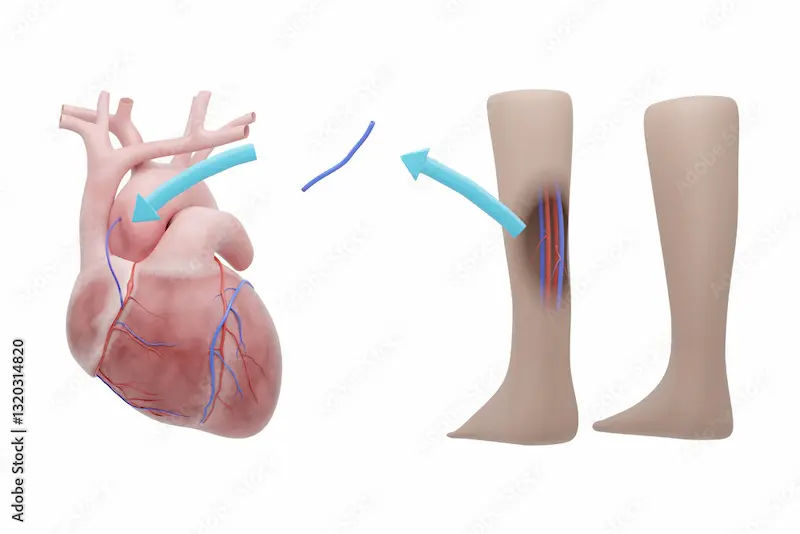Chest Pain And Heart Attack: Know Alarming Signs
Learn about the connection between chest pain and heart attacks. Discover symptoms, warning signs, causes, and when to seek immediate medical attention.

Written by Dr Sonia Bhatt
Last updated on 13th Jan, 2026
Chest pain can be one of the most alarming sensations you can experience, often triggering immediate concern about a heart attack. Many people immediately link chest pain with heart issues, and rightly so—such pain can indeed signal a critical condition. Nonetheless, it's crucial to recognise that not all chest pain originates from heart problems. There are numerous potential causes, ranging from digestive disorders to muscle strains. Understanding these differences is key to identifying when chest pain may indicate a heart attack and when it might be due to other factors. In this guide, we’ll explore the potential causes of chest pain, how to recognise the signs of a heart attack, and what steps you can take to protect your heart and overall well-being.
Understanding Chest Pain
Chest pain encompasses any pain or discomfort occurring in the chest area. The nature of this pain can vary widely, from sharp, stabbing sensations to dull, aching discomfort. Understanding the nature and origin of chest pain is essential for determining its seriousness.
Common Causes of Chest Pain
Chest pain can arise from a multitude of conditions, some directly related to the heart and others involving different parts of the body. Understanding these causes is crucial for determining the right course of action and treatment.
Cardiac Causes: These are directly related to the heart.
Heart Attack (Myocardial Infarction): This occurs when blood flow to a part of the heart is blocked, usually due to a buildup of plaque in the coronary arteries.
Angina: A type of chest pain caused by reduced blood flow to the heart, often triggered by physical exertion or emotional stress.
Pericarditis: Inflammation of the pericardium, the sac surrounding the heart, causing sharp pain.
Non-Cardiac Causes: These can be related to other bodily systems.
Gastroesophageal Reflux Disease (GERD): Acid reflux that causes a burning sensation in the chest, often mistaken for heart pain.
Pulmonary Conditions: Such as pneumonia, pulmonary embolism (a blood clot in the lungs), or pleurisy (inflammation of the lung lining).
Musculoskeletal Issues: Including muscle strain or costochondritis (inflammation of the cartilage connecting ribs to the sternum).
Anxiety and Panic Attacks: These can manifest as intense chest tightness and discomfort.
Heart Attack: Recognising the Symptoms
A heart attack, or myocardial infarction, occurs when blood flow to a part of the heart muscle is blocked, leading to damage of the heart tissue. This blockage is typically caused by a buildup of fatty deposits (plaque) in the coronary arteries, which can rupture and form a clot that obstructs blood flow.
Symptoms of a Heart Attack
Recognising the symptoms of a heart attack is crucial for seeking timely medical intervention. Common symptoms include:
Chest Pain or Discomfort: Often described as pressure, squeezing, fullness, burning, tightness, or pain in the centre of the chest.
Pain in Other Areas: Discomfort in one or both arms, the back, neck, jaw, or stomach.
Shortness of Breath: This may occur with or without chest discomfort.
Other Symptoms: Sudden nausea or vomiting, lightheadedness, dizziness, unusual fatigue, heat/flushing, or a cold sweat. Sudden heaviness, weakness, or aching in one or both arms.
Evaluating Chest Pain: Diagnosis and Assessment
When you experience chest pain, it is essential to seek medical attention. A healthcare provider will start with a detailed medical history and physical examination. They will ask questions about the nature of the pain, its onset, duration, intensity, and associated symptoms.
To determine whether chest pain is heart-related, doctors may use several diagnostic tools:
Electrocardiogram (ECG): This test measures the electrical activity of the heart and can detect abnormalities indicative of a heart attack.
Blood Tests: These check for cardiac markers like troponin, which is released when the heart muscle is damaged.
Imaging Tests: Such as chest X-rays or echocardiograms, which help visualise the heart and lung functions and identify any structural abnormalities.
Chest Pain Symptoms and What They Mean
Chest pain can be alarming, especially when you are unsure whether it's a sign of a heart attack or caused by another condition. Understanding the characteristics of chest pain can help you differentiate between a potential heart attack and other, less serious causes of discomfort. Below is a guide that outlines symptoms that are more likely or less likely to be associated with a heart attack.
| Symptom | More Likely to Be a Heart Attack | Less Likely to Be a Heart Attack |
| Pain Characteristics | Pressure, tightness, squeezing, or burning sensation. | Sharp or stabbing pain, often triggered by breathing or coughing. |
| Onset of Pain | Gradual onset, building over a few minutes. | Sudden, quick pain that lasts only a few seconds. |
| Location of Pain | Pain spreads over a diffuse area, especially in the centre of the chest. | Pain is localised to one small area or on one side of the body. |
| Radiation of Pain | Pain extends to the left arm, neck, jaw, or back. | Pain that does not radiate to other parts of the body. |
| Accompanying Symptoms | Difficulty breathing, cold sweats, sudden nausea, dizziness, or fatigue. | No additional symptoms such as nausea, sweating, or breathlessness. |
| Timing of Pain | Pain may occur after physical exertion, emotional stress, or while at rest. | Pain that lasts for many hours or days without any other concerning symptoms. |
| Reproducibility | Pain that does not worsen with pressing on the chest or moving the body. | Pain reproduced or worsened by pressing on the chest or moving the body. |
Pain from a heart attack isn't confined to the area around the heart. The most typical locations are the centre of the chest and the left arm. However, pain can also radiate to the neck, jaw, back, and even the stomach. Recognising these patterns can help in identifying a heart attack.
Preventing Heart Attacks and Managing Chest Pain
Adopting a heart-healthy lifestyle can significantly reduce the risk of heart attacks and help manage chest pain. Here are some key lifestyle changes:
Healthy Diet: Eat a balanced diet rich in fruits, vegetables, whole grains, lean proteins, and healthy fats. Avoid processed foods, excessive salt, and sugar.
Regular Exercise: Aim for at least 150 minutes of moderate aerobic activity or 75 minutes of vigorous activity each week. Include strength training exercises.
Quit Smoking: If you smoke, seek support to quit. Avoid exposure to secondhand smoke.
Maintain a Healthy Weight: Achieve and maintain a healthy weight through diet and exercise.
Manage Stress: Practice stress-reducing techniques such as meditation, yoga, or deep breathing exercises.
Monitor and Manage Health Conditions: Regularly check blood pressure, cholesterol levels, and blood sugar levels. Follow your doctor's recommendations for managing any chronic conditions.
Conclusion
Chest pain can be a frightening symptom, but it is essential to remember that not all chest pain is heart-related. Understanding the potential causes of chest pain, recognising the symptoms of a heart attack, and knowing when to seek medical attention is vital for your health and well-being. By making lifestyle changes and managing risk factors, you can reduce your chances of a heart attack and improve your overall heart health. Remember, if you are ever in doubt about chest pain, it is always better to seek medical help immediately.
Consult Top Cardiologist

Dr. Shubhadeep Das
Paediatrician
17 Years • MBBS, MD (Paediatrics), FRCPCH (London), FRCP(Edinburgh), FRCP (London), EPIC Diploma, Fellowship in Paediatric Intensive care & Cardiac Intensive care (Canada and UK ).
Kolkata
Dr Shubhadeep Das's Child care clinic, Kolkata
(25+ Patients)

Dr. Mainak Baksi
General Practitioner
13 Years • MBBS , MD (MPH)
Howrah
Mainak Baksi Clinic, Howrah
(50+ Patients)

Dr. Amitava Ray
General Physician/ Internal Medicine Specialist
20 Years • MBBS, DNB (Family Med.), PGDHHM, FRSTM&H. Certificate in Geriatric medicine & Diabetes Management.
Kolkata
Apollo Multispeciality Hospitals , Kolkata, Kolkata
(625+ Patients)

Dr. Rajib Ghose
General Physician/ Internal Medicine Specialist
25 Years • MBBS
East Midnapore
VIVEKANANDA SEBA SADAN, East Midnapore

Dr. S Madhuri
Dermatologist
10 Years • MBBS, MD. DVL, DNB, Fellow (Dermatosurgery & Lasers)
Secunderabad
Apollo Hospitals Secunderabad, Secunderabad
(450+ Patients)
Consult Top Cardiologist

Dr. Bhethala Sharan Prakash
General Physician/ Internal Medicine Specialist
5 Years • MBBS MD
Bengaluru
PRESTIGE SHANTHINIKETAN - SOCIETY CLINIC, Bengaluru

Dr. Anand Ravi
General Physician
2 Years • MBBS
Bengaluru
PRESTIGE SHANTHINIKETAN - SOCIETY CLINIC, Bengaluru

Dr. Sumanjita Bora
Cardiologist
9 Years • MBBS, PGDCC
Bengaluru
Apollo Clinic, Sarjapur Road, Bengaluru

Dr. Dayanashre N
General Physician
3 Years • MBBS
Bengaluru
PRESTIGE SHANTHINIKETAN - SOCIETY CLINIC, Bengaluru

Dr. Ramalinga Reddy
General Physician
5 Years • MBBS MD General medicine
Bengaluru
PRESTIGE SHANTHINIKETAN - SOCIETY CLINIC, Bengaluru



.webp)
